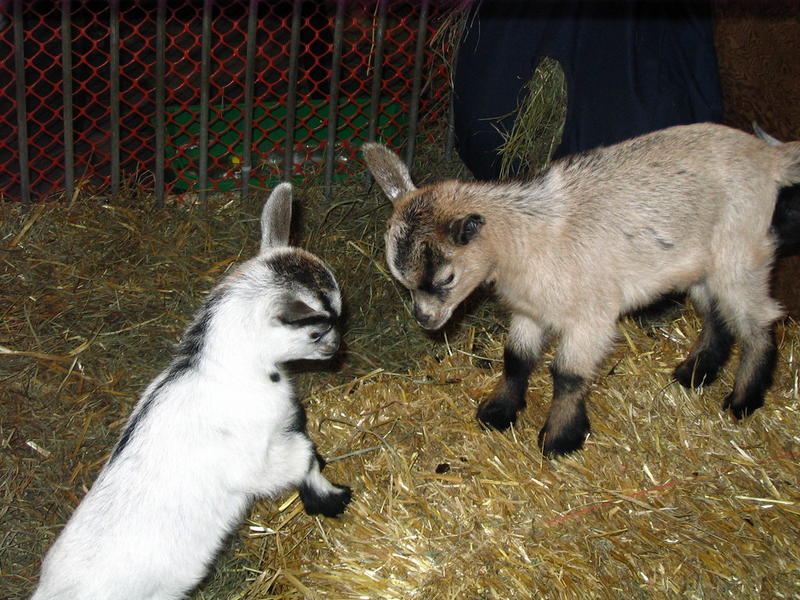Does Milk Come in Faster With Second Baby

For the first six months of its life, a baby goat is called a kid. From six months to a year old, a female goat is known as a doeling. A male is a buckling. At a year old, a female goat is a doe or nanny. An adult male goat is referred to as a billy or buck. The formal name for a group of goats is a herd, although some people use the term tribe.
As with all living creatures, there are a lot of factors to keep in mind to ensure a baby goat is healthy and happy in its surroundings. Let's explore some of the care that is required for raising a goat.
Assisting with Birth
A doe has the ability to become pregnant as soon as it reaches puberty. This can be as young as four months old. However, veterinary experts suggest waiting until the goat is 10 to 15 months old before breeding them. A typical gestation for pregnancy is 150 days. This allows the doe to reach 15 to 20 months old before giving birth, making the process easier.
During pregnancy it's important for the doe to receive proper nutrition and a safe, comfortable place to reside. Ensure that fresh straw, food and plenty of water is provided during this time.
When birthing begins, the doe has natural instincts that allow her to give birth on her own in normal circumstances. Should you notice her struggling, you can provide assistance. You may be required to gently pull on the baby as it's being born. Maintain a firm, yet gentle grip on the kid.
Swaddle the kid in a clean, warm blanket. Gently rock the swaddled baby back and forth to help loosen any mucus or secretions that remain in its airways. The doe will take over quickly to clean her baby.
E nsuring Proper Nutrition
When the kid is born, it'll begin nursing within the first 30 to 45 minutes. However, this may take a little longer. Don't panic. If the baby doesn't take to the mother as needed, you can provide nutrition through bottle feeding.
It's important to ensure the baby receives colostrum within the first few hours of its birth. This milk contains antibodies that help fight off infections and illnesses while building a strong immune system. This supplement is provided through the doe's milk naturally. However, if you need to bottle feed the kid, you should have the colostrum supplement around. You can switch to regular replacement milk after the first few days. A kid needs to be fed at least four times throughout a day.
Weaning
A kid can be weaned from the mother after 30 days. However, you should aim for six to eight weeks after birth. To provide for the fiber necessary in a goat's diet, introduce hay after the second week. Other types of fiber supplements include grain and grass.
Shelter
A baby goat is susceptible to different types of diseases and illnesses because its immune system has not reached full maturity. Ensure it has adequate shelter to sleep and play in. The shelter should be warm and dry, away from winds or drafts from the outside. Clean straw or wood chips should be used for the flooring for the kid to sleep on. There should be plenty of room to accommodate however many babies are present.
As long as the mother and baby are doing fine, it's not necessary to seek immediate vet care. However, you should make arrangements for a check-up when possible to give your new addition the best start in life. Your vet may suggest nutritional supplements, exercise or vaccinations.
MORE FROM REFERENCE.COM
Does Milk Come in Faster With Second Baby
Source: https://www.reference.com/pets-animals/baby-goat-called-c6bbfa1fcec01e0f?utm_content=params%3Ao%3D740005%26ad%3DdirN%26qo%3DserpIndex
0 Response to "Does Milk Come in Faster With Second Baby"
Post a Comment